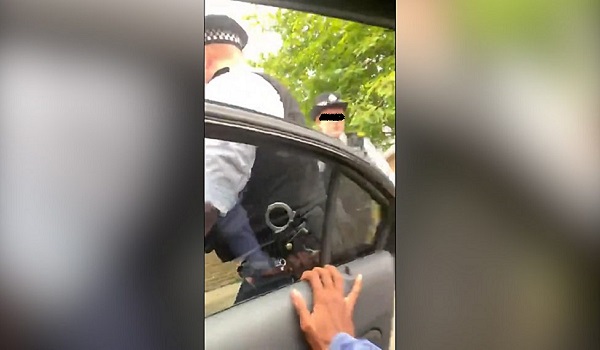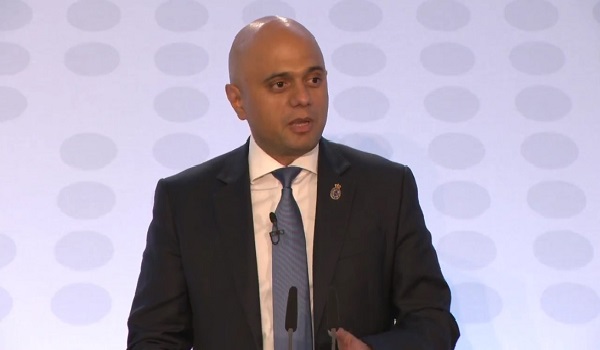Lack of effective leadership training identified at Police Scotland
A new report has highlighted the need for “renewed focus and investment” in the training and development of officers and staff at Police Scotland.
Her Majesty’s Inspectorate of Constabulary in Scotland (HMICS) said the resource devoted to leadership training, talent management and continuous professional development was only “modest”.
Published this week, the HMICS report – Thematic Inspection of Police Scotland Training and Development: Phase 1 – found that this lack of resources dedicated to leadership training has limited the support given to police leaders
It said leadership training has not been provided in any meaningful way since the national service was established in 2013, which has had “consequences on police leaders’ self-awareness and strategic perspective”.
“Officers and staff who have been promoted during the past seven years have received no leadership training or development since their attendance on a first line managers’ course,” the report said.
“The lack of leadership training has consequences. Senior people in partner agencies observed that police leaders are generally very effective in command roles responding to critical incidents, but lack emotional intelligence, self-awareness, and strategic perspective.
“On promotion, police officers often wait for months before gaining access to the first line managers’ course. Police staff wait for even longer as there is only a small number of spaces reserved for police staff.”
Many Leadership, Training and Development (LTD) staff consulted were unaware of any key performance indicators for their work other than demand and throughput information.
There was also a lack of a systematic approach to using and reporting on feedback information. HMICS said this limited the level of assurance that can be given on the quality and outcomes of the overall provision of training and development in Police Scotland
It also found there was no evaluation framework in place to assess the impact of the chief constable’s commitments, which were published in 2019.
The absence of a Strategic Workforce Plan and associated action plan was also inhibiting effective resource planning for the whole force and limiting LTD’s ability to develop an effective suite of training programmes to deliver future capability.
In addition, the current appraisal system in place across Police Scotland – Personal Development Conversations (PDCs) – was found to have “extremely low completion rates” across Scotland, meaning that most officers and staff have not had an appraisal
There were also limited opportunities for officers and staff to access continuous professional development.
HMICS said wellbeing surveys should also be held more regularly to monitor the impact of the People Strategy 2018-2021 – Police Scotland’s commitment to ‘empower, enable and develop its people’. No wellbeing survey has been carried out since 2015, although Police Scotland says a new ‘wellbeing and engagement’ survey is planned.
While diversity training was previously provided as part of leadership courses at all levels, the discontinuation of most of these courses has created a gap in relation to diversity training provided to senior members of the organisation.
However, HMICS said the introduction of My Career and Leadership Pathways indicates that Police Scotland wants to be able to “identify and grow talent from within the organisation”.
Police Scotland has also recently introduced an Accelerated Leadership Pathway, which will benefit a small number of officers each year, and links with the College of Policing have been strengthened in recent years
Gill Imery QPM, HM Chief Inspector of Constabulary in Scotland, said: “The evidence gathered during this inspection highlights the need for renewed focus and investment in the training and development of officers and staff.
“It highlights the need to allocate sufficient resources to the development and implementation of new approaches to appraisal and promotion, in support of the People Strategy.”
However, she said she was “aware that progress has been made”.
“This report is the product of inspection activity that took place in late 2019 up until March 2020, with some later interviews taking place over the telephone,” said Ms Imery.
“I am aware that progress has been made since our inspection took place, and some areas highlighted in this inspection will need to be revisited in the next phase.”
The inspection was one of those halted in early March 2020 due to the response to the coronavirus pandemic.
“At that time, and indeed now, Police Scotland is making a vital contribution to the national effort to reduce the spread of infection, and ultimately save lives,” said Ms Imery.
“This is the report of Phase 1 of an assessment of the training and development function of Police Scotland. Its main focus is on leadership training, continuous professional development, talent management, as well as appraisal and promotion processes.
“The issue of diversity in policing, specifically the recruitment, retention, development and promotion of under-represented groups, is one that HMICS will concentrate on as a priority in the next phase of inspection of training and development.
“I am also very aware of the important contribution made by officers of the Special Constabulary, particularly during the response to the pandemic, when they have continued to volunteer to support communities. The Special Constabulary will be included in later phases of inspection of training and development.”
The report recommended that Police Scotland should:
- Establish a robust performance framework for LTD, with key performance indicators and quality assured evaluation strategies, to be able to demonstrate progress;
- Establish an evaluation framework to assess the impact of the chief constable’s commitments;
- Review the leadership and talent function, and consider if it has adequate resources and sits in the correct place in the organisation’s structure, to allow it to fulfil its important responsibilities;
- Ensure senior police officers and support staff are provided with leadership training beyond technical training for specific roles, as a matter of urgency
- Ensure that all police officers and support staff are provided with appropriate leadership training prior to undertaking a supervisory role;
- Ensure the new appraisal process ‘My Career’ is supported by a range of continuous professional development products to provide all officers and staff with opportunities to develop;
- Review the use of acting and temporary promotions to achieve consistency across the organisation;
- Develop an effective communications strategy to assist in the implementation of the ‘My Career’ and the ‘Leadership Pathways’ project;
- Initiate an Equality and Human Rights Impact Assessment (EQHRIA) at the earliest possible stage in the development of all training and development products, so that the implications for equality and human rights are considered and addressed from the start;
- Ensure that diversity training is provided and mainstreamed into leadership courses at all levels as a matter of urgency;
- Review the current approach to delivering training, with a view to providing more flexible options for accessing training through the use of technology, and at different times and locations;
- Develop a systematic process to record wellbeing conversations and considerations in support of its Wellbeing Strategy;
- Develop a systematic approach to the use of coaching and mentoring throughout the organisation, as part of core leadership and management training;
- Review the various places where local and specialist training are being delivered throughout the force, in the LTD business area, and consider the opportunities to increase capability and capacity through sharing resources;
- Raise awareness of the products and services provided by the leadership and talent function within LTD;
- Consider increasing its use and development of specialist training tools and ICT to deliver cost effective and accessible training programmes; and
- Work collaboratively to develop a strategy which supports the delivery of joint training with other key partners across the public sector, including local government and health.







